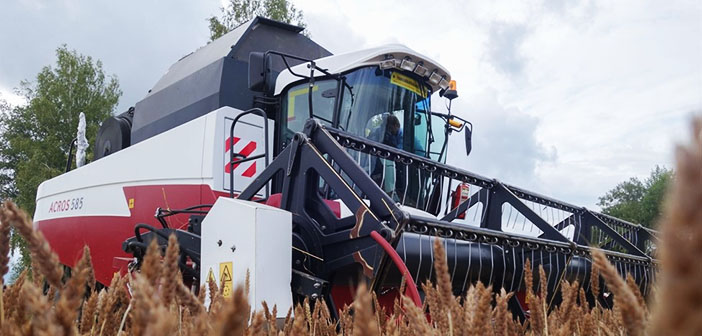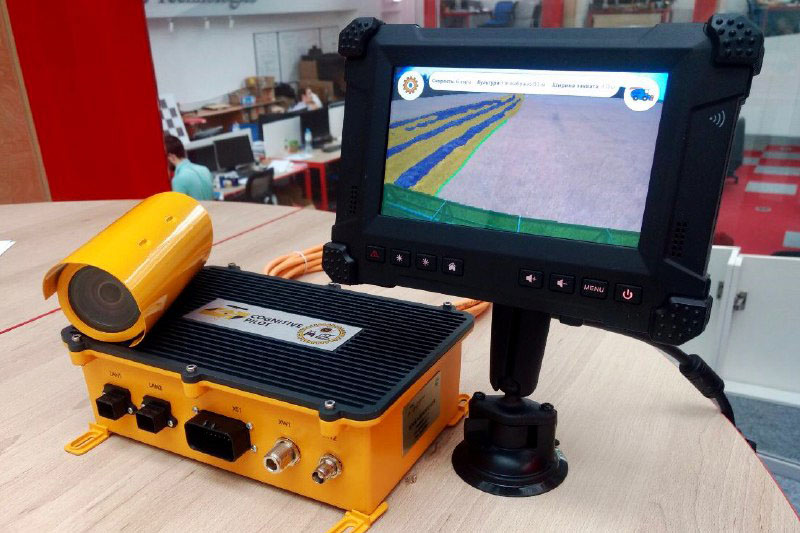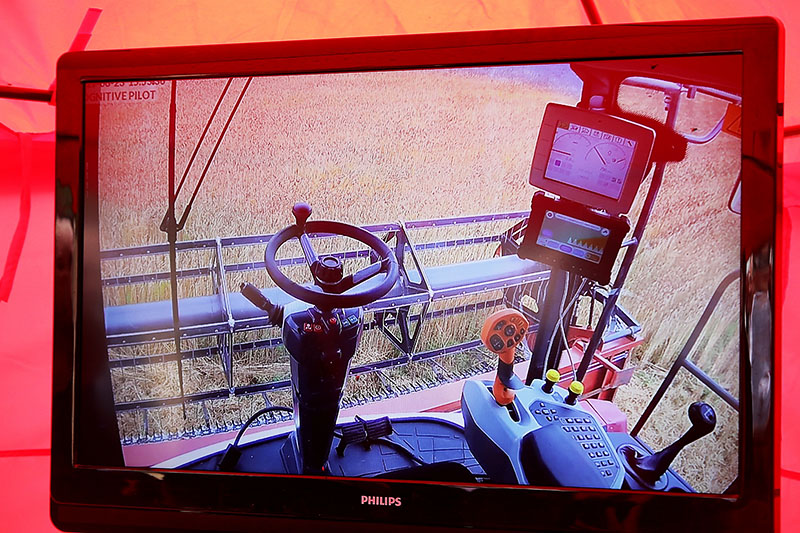Rusagro, Russia’s largest integrated agricultural holding company, has entered into a contract with Cognitive Pilot, a tech start-up backed by Russia’s largest bank Sberbank. The deal will see Cognitive Pilot’s farming specific autonomous driving software Cognitive Agro Pilot installed on 242 combine harvesters used by Rusagro. The award winning Cognitive Agro Pilot system has already been successfully adopted in the USA, Brazil, and China, as well as in several other Russian regions.
By freeing up the vehicle’s operator from driving and steering, Cognitive Agro Pilot allows him or her to focus instead on adjustments to the header and beater drum and controlling the harvesting speed. This should reduce grain losses which are predominantly linked to human error and are estimated to exceed one million tons per year annually in Russia alone.
“So far, combines still need drivers.” Says Olga Uskova, CEO of Cognitive Pilot “However, the automatic control system will enable them to focus more on managing and controlling other harvesting parameters, like the angle of the header, setting up the threshing process, and cleaning the grain. The edge capture when controlling a harvester by the AI system is stable at no more than 20 cm, which lets you avoid unnecessary passes and fuel losses. In general, the use of Cognitive Agro Pilot enables stakeholders to cut grain costs by 3–5% and drive grain harvest losses down by up to two times. In the future, we plan to create a completely unmanned system”
With vehicle speeds of up to 15 kmph Cognitive Agro Pilot can be safely operated in all weather and lighting conditions. The solution does not have a GPS navigation system at the core of its control model. The system analyzes images from just one video camera, which lets it detect obstacles, including people, animals, metallic objects, and stones along the way, and enables it to operate on the territories with a weak satellite signal. The suite being installed on combine harvesters under the Rusargo project includes an onboard computing unit, video camera, display, a set of connecting cables, and other elements of the control system.
According to the trial specifications, the autonomous system will control a combine’s unmanned movement:
- along the edge (sloped crop, cultivated land)
- along rows (a way that wheat, corn, sunflower, and other crops are planted)
- along windrows (cut crops formed into rows).
The system will also be automatically identifying obstacles along the route and informing combine operators about obstacles or route failures in case of manual control. Operators will have access to trajectory tracking in real time for each solution-equipped combine.
Roman Shkoller, CEO for the agriculture business division at Rusagro is focused on the cost benefits of embracing autonomous driving technologies like Cognitive Agro pilot: “The use of autonomous machinery control systems during harvesting will minimize the risks of the negative impact of human errors and further optimize the use of combines. Interestingly, the large-scale adoption of the system coincided with the year when Russia is expecting record wheat crops. Rusagro Holding is one of the global leaders in terms of digitization and innovations in the agriculture sector. Our strategy is aimed at increasing the EBITDA per hectare figure, which is a clone of unit economics in the agricultural business. Digitization is the only way to achieve it and build a truly transparent and efficient operating model, which can then be scaled further.”
Under the terms of the contract, the Cognitive Agro Pilot software and hardware suite will be installed on 242 combine harvesters Rusagro uses in Belgorod Region, Tambov Region, Kursk Region, Oryol Region, and Primorye Territory. The machines will be fitted with the solution step by step during harvesting in 2020 and 2021. The first suites will be tested as soon as in mid-June.





